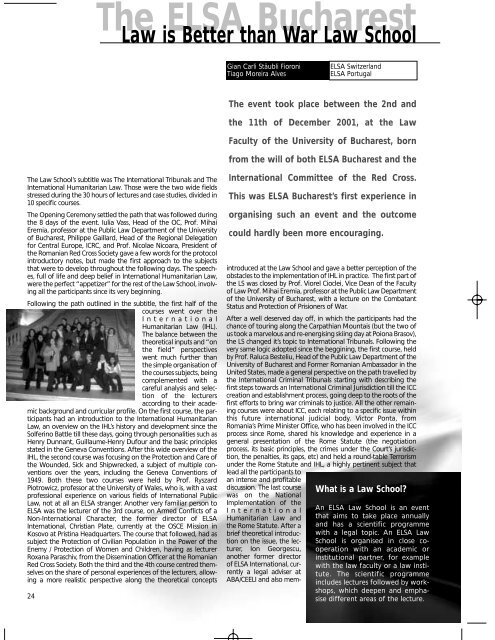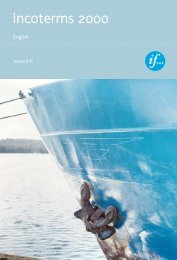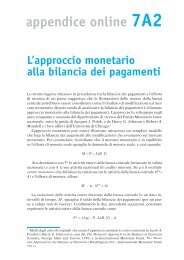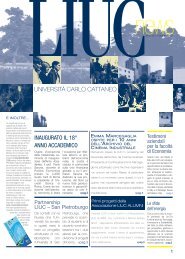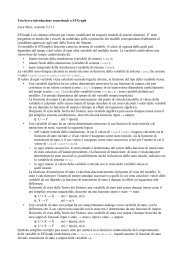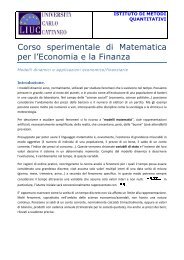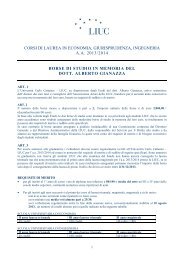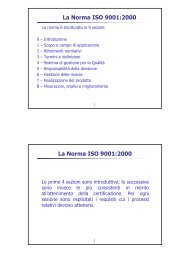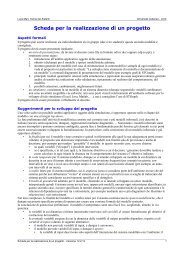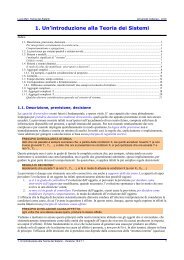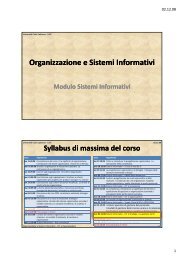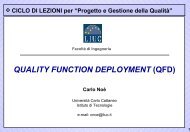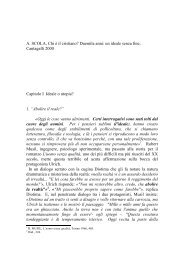The ELSA
The ELSA
The ELSA
- No tags were found...
Create successful ePaper yourself
Turn your PDF publications into a flip-book with our unique Google optimized e-Paper software.
<strong>The</strong> <strong>ELSA</strong> BucharestLaw is Better than War Law SchoolGian Carli Stäubli FioroniTiago Moreira Alves<strong>ELSA</strong> Switzerland<strong>ELSA</strong> Portugal<strong>The</strong> event took place between the 2nd andthe 11th of December 2001, at the LawFaculty of the University of Bucharest, bornfrom the will of both <strong>ELSA</strong> Bucharest and the<strong>The</strong> Law School’s subtitle was <strong>The</strong> International Tribunals and <strong>The</strong>International Humanitarian Law. Those were the two wide fieldsstressed during the 30 hours of lectures and case studies, divided in10 specific courses.<strong>The</strong> Opening Ceremony settled the path that was followed duringthe 8 days of the event. Iulia Vass, Head of the OC, Prof. MihaiEremia, professor at the Public Law Department of the Universityof Bucharest, Philippe Gaillard, Head of the Regional Delegationfor Central Europe, ICRC, and Prof. Nicolae Nicoara, President ofthe Romanian Red Cross Society gave a few words for the protocolintroductory notes, but made the first approach to the subjectsthat were to develop throughout the following days. <strong>The</strong> speeches,full of life and deep belief in International Humanitarian Law,were the perfect “appetizer” for the rest of the Law School, involvingall the participants since its very beginning.Following the path outlined in the subtitle, the first half of thecourses went over theInternationalHumanitarian Law (IHL).<strong>The</strong> balance between thetheoretical inputs and “onthe field” perspectiveswent much further thanthe simple organisation ofthe courses subjects, beingcomplemented with acareful analysis and selectionof the lecturersaccording to their academicbackground and curricular profile. On the first course, the participantshad an introduction to the International HumanitarianLaw, an overview on the IHL’s history and development since theSolferino Battle till these days, going through personalities such asHenry Dunnant, Guillaume-Henry Dufour and the basic principlesstated in the Geneva Conventions. After this wide overview of theIHL, the second course was focusing on the Protection and Care ofthe Wounded, Sick and Shipwrecked, a subject of multiple conventionsover the years, including the Geneva Conventions of1949. Both these two courses were held by Prof. RyszardPiotrowicz, professor at the University of Wales, who is, with a vastprofessional experience on various fields of International PublicLaw, not at all an <strong>ELSA</strong> stranger. Another very familiar person to<strong>ELSA</strong> was the lecturer of the 3rd course, on Armed Conflicts of aNon-International Character, the former director of <strong>ELSA</strong>International, Christian Plate, currently at the OSCE Mission inKosovo at Pristina Headquarters. <strong>The</strong> course that followed, had assubject the Protection of Civilian Population in the Power of theEnemy / Protection of Women and Children, having as lecturerRoxana Paraschiv, from the Dissemination Officer at the RomanianRed Cross Society. Both the third and the 4th course centred themselveson the share of personal experiences of the lecturers, allowinga more realistic perspective along the theoretical concepts24International Committee of the Red Cross.This was <strong>ELSA</strong> Bucharest’s first experience inorganising such an event and the outcomecould hardly been more encouraging.introduced at the Law School and gave a better perception of theobstacles to the implementation of IHL in practice. <strong>The</strong> first part ofthe LS was closed by Prof. Viorel Cioclei, Vice Dean of the Facultyof Law Prof. Mihai Eremia, professor at the Public Law Departmentof the University of Bucharest, with a lecture on the CombatantStatus and Protection of Prisioners of War.After a well deserved day off, in which the participants had thechance of touring along the Carpathian Mountais (but the two ofus took a marvelous and re-energising skiing day at Poiona Brasov),the LS changed it’s topic to International Tribunals. Following thevery same logic adopted since the beggining, the first course, heldby Prof. Raluca Besteliu, Head of the Public Law Department of theUniversity of Bucharest and Former Romanian Ambassador in theUnited States, made a general perspective on the path travelled bythe International Criminal Tribunals starting with describing thefirst steps towards an International Criminal Jurisdiction till the ICCcreation and establishment process, going deep to the roots of thefirst efforts to bring war criminals to justice. All the other remainingcourses were about ICC, each relating to a specific issue withinthis future international judicial body. Victor Ponta, fromRomania’s Prime Minister Office, who has been involved in the ICCprocess since Rome, shared his knowledge and experience in ageneral presentation of the Rome Statute (the negotiationprocess, its basic principles, the crimes under the Court’s jurisdiction,the penalties, its gaps, etc) and held a round-table Terrorismunder the Rome Statute and IHL, a highly pertinent subject thatlead all the participants toan intense and profitablediscussion. <strong>The</strong> last coursewas on the NationalImplementation of theInternationalHumanitarian Law andthe Rome Statute. After abrief theoretical introductionon the issue, the lecturer,Ion Georgescu,another former directorof <strong>ELSA</strong> International, currentlya legal adviser atABA/CEELI and also mem-What is a Law School?An <strong>ELSA</strong> Law School is an eventthat aims to take place annuallyand has a scientific programmewith a legal topic. An <strong>ELSA</strong> LawSchool is organised in close cooperationwith an academic orinstitutional partner, for examplewith the law faculty or a law institute.<strong>The</strong> scientific programmeincludes lectures followed by workshops,which deepen and emphasisedifferent areas of the lecture.


